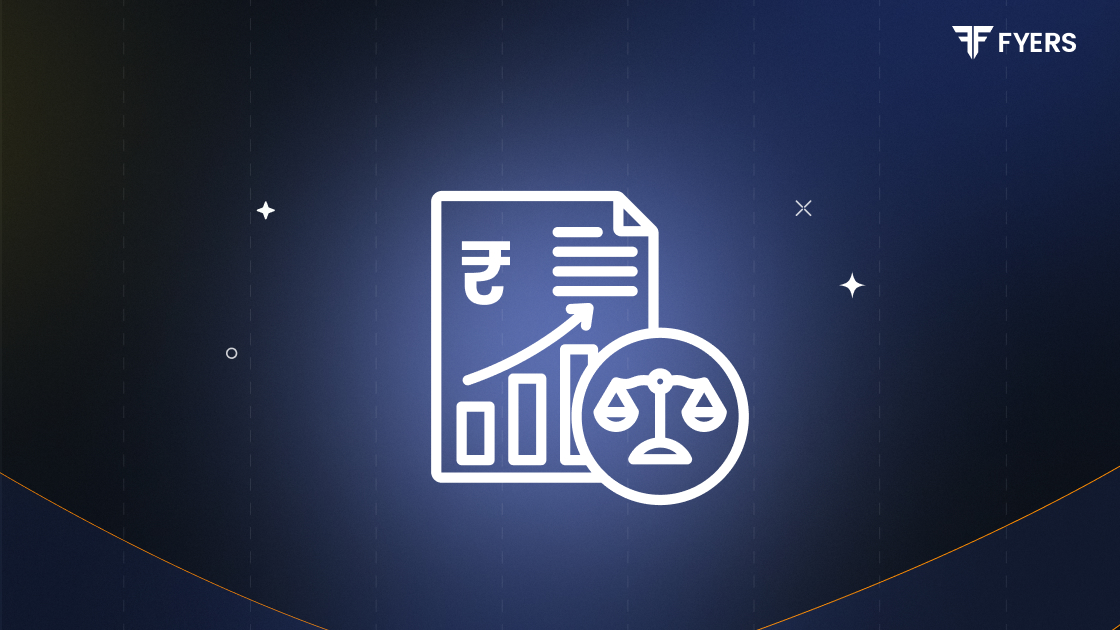

 30 Aug, 2024
30 Aug, 2024
 4 mins read
4 mins read

Stock markets are highly volatile, with the potential to make huge profits and the risk of wiping the entire capital away. Therefore, before entering the realm of stock trading, it is better to have something like a practice round. This is where paper trading comes into the picture. Read on to learn what paper trading is and how to do paper trading effectively.
Paper trading is a method traders use to practice buying and selling stocks without actually using real money. Instead of trading with real funds, traders keep track of their trades on paper (or digitally) to see how the strategies would perform in the real market.
This allows traders to learn and test their trading strategies, understand market movements, and build confidence without risking their actual capital. It is, therefore, a valuable way for traders to gain experience and refine their trading skills before entering the live market.
Traders use paper trades to practice and test their trading strategies without risking real money. In simple terms, it's like playing a simulation game, where traders write down their trades on paper or use a digital tool to track hypothetical buys and sells.
For example, Disha, an IT professional, thinks that Reliance Industries' stock will rise in the near term and wants to buy a futures contract expiring on 29 Aug 2024. The margin required for this trade would be Rs 1,44,338.95 if she were to buy the contract.
Instead, she makes a paper trade, assuming she buys the contract and records the trade details.
She then tracks the contract’s performance over time to see how her trade would have performed. This helps her understand market trends and refine her strategies without financial risk. Paper trading is valuable for building confidence and gaining experience before committing real money to the market.
Paper trading is the art of gaining real-world experience in stock markets before actually taking the plunge in the real sense. The benefits or advantages of paper trading, which make it attractive, especially for new participants, are -
Risk-Free Practice: Paper trading allows you to practice and become familiar with market behaviour and test strategies without risking real money.
Skill Development - It helps build trading skills and understand market dynamics without financial pressure.
Strategy Testing - Traders can experiment with different strategies to see what works best before committing real funds.
Confidence Building - Traders can gain confidence in their decision-making abilities by tracking hypothetical trades.
Learning Opportunity - It provides a chance to learn from mistakes and successes without the stress of real losses.
Cost-Effective - Paper trading does not require any investment, making it a cost-effective way to practice trading.
Performance Review - It allows traders to review and analyse their performance and strategies over time without actual financial impact.
Paper trading is like simulation trading. The key differences between paper trading and live trading are
|
|
Paper Trading |
Live Trading |
|---|---|---|
|
Risk |
No actual financial risk, as there is no real money is involved |
Real financial risk involved in live trading |
|
Cost |
It avoids costs such as taxes and brokerages |
Live trading incurs costs such as commissions, fees, and potential losses, making it more expensive. |
|
Emotional Impact |
Eliminates emotional pressure because no real money is at stake |
Live trading involves high emotional pressure due to the stakes of real money, which can affect traders' decision-making. |
|
Market Behaviour |
It may not capture all the nuances of real market conditions. |
Live trading reflects market behaviour and dynamics, providing a more accurate understanding of market conditions. |
|
Strategy Testing |
Traders can test various strategies risk-free in paper trading, allowing them to experiment and learn without financial risk. |
Strategy testing in live trading requires careful consideration as mistakes can result in real financial losses. |
Paper trading is a valuable tool for traders in India to practice and refine their skills without financial risk. It offers a risk-free way to experiment with strategies, understand market behaviour, and build confidence. While it can't fully replicate the pressures and nuances of live trading, it provides essential experience and insights that can help traders make more informed decisions. Paper trading can help traders set a strong foundation for successful trading in the live market.
Calculate your Net P&L after deducting all the charges like Tax, Brokerage, etc.
Find your required margin.
Calculate the average price you paid for a stock and determine your total cost.
Estimate your investment growth. Calculate potential returns on one-time investments.
Forecast your investment returns. Understand potential growth with regular contributions.